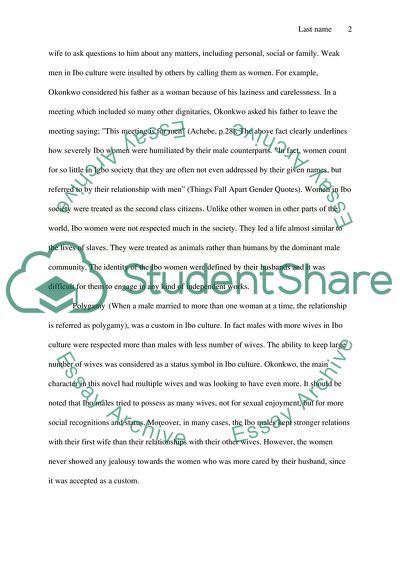Cite this document
(“How are women represented in Things Fall Apart Research Paper”, n.d.)
Retrieved from https://studentshare.org/miscellaneous/1579411-how-are-women-represented-in-things-fall-apart
Retrieved from https://studentshare.org/miscellaneous/1579411-how-are-women-represented-in-things-fall-apart
(How Are Women Represented in Things Fall Apart Research Paper)
https://studentshare.org/miscellaneous/1579411-how-are-women-represented-in-things-fall-apart.
https://studentshare.org/miscellaneous/1579411-how-are-women-represented-in-things-fall-apart.
“How Are Women Represented in Things Fall Apart Research Paper”, n.d. https://studentshare.org/miscellaneous/1579411-how-are-women-represented-in-things-fall-apart.


